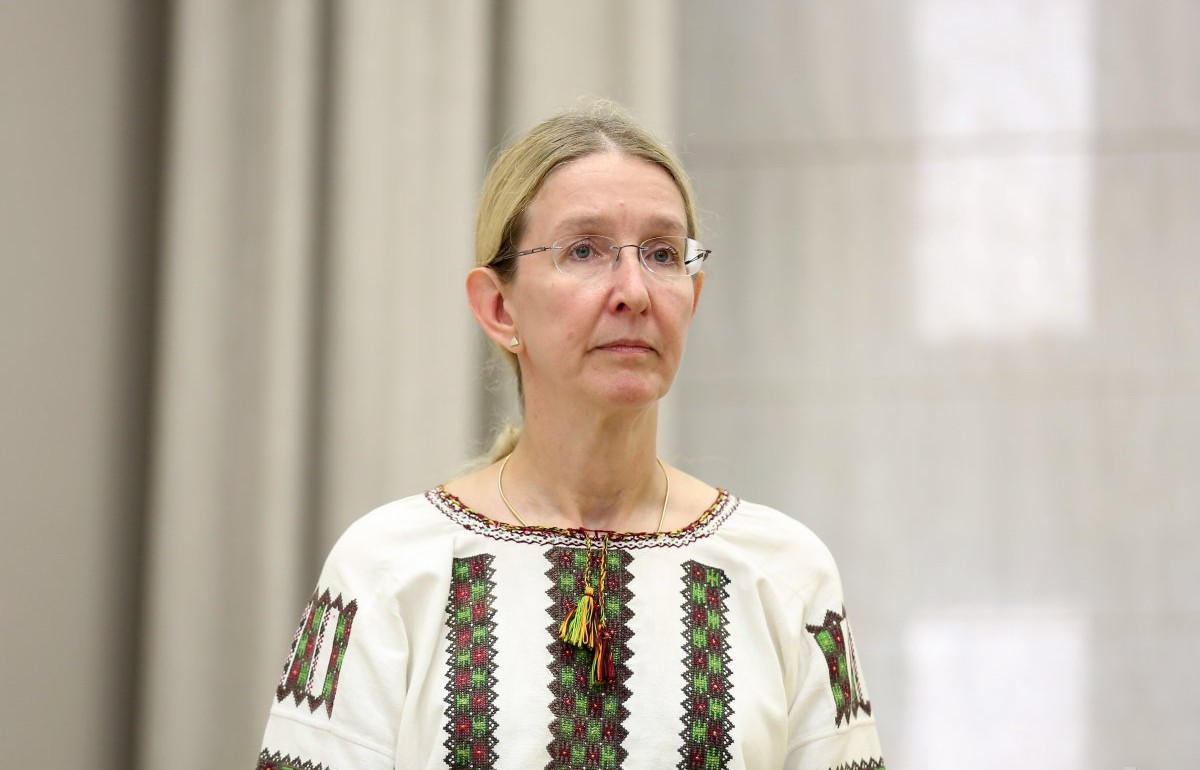
"The changes that we are making in Ukraine's health care sector are breaking the old rules and establishing new standards," Suprun said in a written statement on January 23, Melinda Haring, the editor of the UkraineAlert at the Atlantic Council, wrote in an article.
Her early moves have been noticed: on January 18, five members of Ukraine's parliamentary committee on health attempted to oust Suprun and failed. Prime Minister Volodymyr Groysman and civil society organizations urged parliament to stick with Suprun and stop blocking health care reforms.
"I feel support from the prime minister and the entire cabinet," as well as many MPs, civil society, and many young doctors, she said.
Suprun has two other advantages: she's not starting from scratch, and she's not new to Ukraine. Suprun's parents were born in Ukraine and she grew up going to Ukrainian schools and a Ukrainian church in Detroit, Michigan.
"We always dreamed of moving to Ukraine," she said in a January 13 telephone interview. Suprun and her husband Marko finally moved to Kyiv in December 2013, where they actively supported the Euromaidan.
She compared her job as minister to her previous work as director of humanitarian initiatives at the Toronto-based Ukrainian World Congress.
Read alsoHealth Minister stands against elected State Secretary for HealthIn the Ministry of Health, Suprun's staff took the reform plan established by the previous team and added deadlines. By 2017, each patient will have his or her own doctor; currently, one's residence dictates where they can receive health care. By 2018, a still-in-development National Health Insurance Agency will pay for services at hospitals; all Ukrainians will be guaranteed primary and emergency care. And by 2019, the agency will cover highly specialized care and cardiac surgery, although a copay is likely for those who can afford it.
"Primary care almost doesn't exist," Suprun said. Ukrainians automatically see specialists 80 percent of the time and visit a primary care doctor only 20 percent of the time. "It should be the other way around."
Ukraine's current health care system distributes money from the state budget to the regions; this money pays for administrators, infrastructure, and health care workers, including doctors, who work for hospitals and polyclinics. Under Suprun's new system, doctors will be paid for every patient they see, which may incentivize them to see more patients. She also wants to introduce a system of individual licensing, so that doctors can move from one hospital to another and open private practices. In Ukraine, health care facilities are licensed, not doctors.
And unlike the United States, doctors make a paltry salary in Ukraine. "The system was set up in such a way that you can't even live on the wages they're given," Suprun said. It's not uncommon for patients to offer their doctors bribes for better service.
In the past, head doctors have required that the doctors who work for them offer bribes for the privilege of working at their facility. The new system will remove some of that petty corruption by giving doctors the ability to move around, and by allowing patients to choose their doctors.
Massive corruption in drug procurement is another serious issue, Suprun explained, but things are changing. As of 2015, only three international organizations — UNDP, UNICEF, and the international company Crown Agent — are allowed to procure major medicines for the state, which has saved the country an estimated $30 million.
By 2019, the Ministry of Health will set up its own procurement agency. But for now, these international organizations are "teaching us how to do this," Suprun said.

